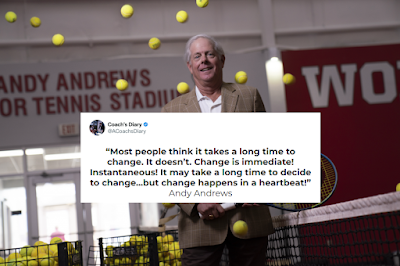1.31 Mel Robbins: Thinkers and Doers

“In life, the direction that you are headed in is way more important than the speed you are moving.” - Mel Robbins Are you a thinker or a doer? Thinkers love thinking, planning, and dreaming, while doers love taking those thoughts, plans, and dreams and converting them into actions. You can’t just think your way to success; you have to get out of your head and get to work. You have to have goals and plans, but goals and plans without deadlines and consistent actions are just dreams and fantasies. Doers without plans are often busy doing a lot of things but aren’t going anywhere and aren’t being productive. Doers without plans are often the ones who say they are always busy, overwhelmed, overworked, and eventually burn out or flame out when they don’t have to. Because they are too busy doing things without plans, they often end up doing too much just so they can say they are busy. We aren’t meant to be busy; we are meant to be productive. Be a thinker AND a doer. Decide what you wa...
















